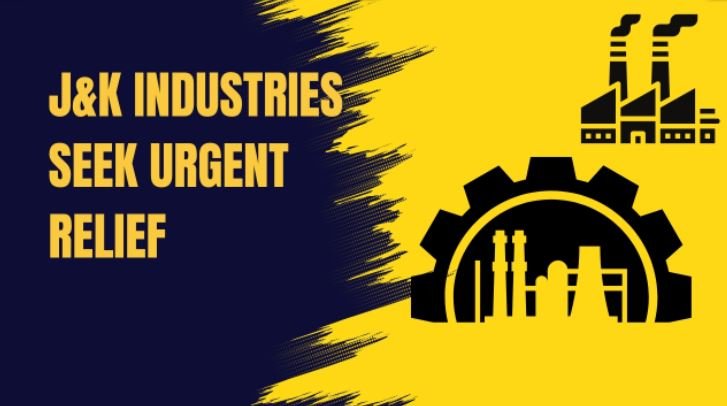The vision of making Jammu and Kashmir a hub of industrial activity rests heavily on the strength of its administrative systems and ease of doing business. At the heart of this vision lies the Single Window Clearance Mechanism, an important digital tool introduced in February 2022, which promises to transform approvals, registrations, and regulatory compliance into a streamlined, efficient, and transparent process. However, the prolonged disruption of this system, which has been non-functional for over two and a half months, has raised growing concerns within the region’s business community, particularly among those who have long served as pillars of the local economy.
For existing industrial units, this prolonged downtime presents significant challenges. The inability to renew licenses, submit applications, or access incentive approvals has led to avoidable delays in operations and in decision-making. The Federation of Industries, Jammu (FOIJ), has taken a proactive step by drawing the government’s attention to the issue, requesting a temporary alternative mechanism, such as accepting treasury receipts and allowing physical submission of documents, to ensure that the wheels of industry do not come to a complete standstill. Their call reflects not only a concern about inconvenience but also a plea to maintain momentum during a time when confidence and clarity are most needed. The situation is particularly sensitive considering the longstanding contribution of J&K’s existing industries, which have operated despite considerable geographical, political, and economic odds. These enterprises sustained operations during difficult phases in the region’s history, creating jobs and supporting livelihoods. Today, many of these businesses feel sidelined amid a strong push to attract new investments. While it is heartening to see fresh initiatives aiming to bring in capital and development, the foundational industries that have remained committed to the region must not be ignored. Several concerns raised by the FOIJ point to systemic issues that merit attention. Delays in the disbursement of committed incentives, such as SGST reimbursements and turnover-based support, inconsistent policy implementation, and the withdrawal of purchase preferences for local manufacturers have put considerable strain on small and medium industries. These policies were not merely benefits; they were lifelines designed to create a level playing field for J&K’s entrepreneurs, especially given the logistical and cost disadvantages they face compared to peers in more industrially developed states. FOIJ has rightly recommended a long-term approach, suggesting that a 10-year industrial policy with a clear incentive structure, including both new and existing units, could provide the much-needed stability. Extending the Power Amnesty Scheme to industrial units would offer significant financial relief, while revisiting the marketing support framework through procurement preferences could reinvigorate hundreds of local units built to meet government supply needs across sectors. The temporary breakdown of the Single Window System is a reminder that digital infrastructure must be backed by dependable contingency plans and responsive governance to ensure its effectiveness. Administrative mechanisms must be flexible and inclusive, especially in regions with unique challenges and aspirations.
Moving forward, a balanced approach that honours the contributions of existing industries while creating space for new entrants is essential. Ensuring that long-standing industrial units feel supported, heard, and valued will build the kind of trust and resilience that policies cannot replace. In doing so, the government can send a strong and reassuring message that the growth of industry in Jammu and Kashmir is not just a goal but a shared journey built on fairness, inclusion, and continuity.




